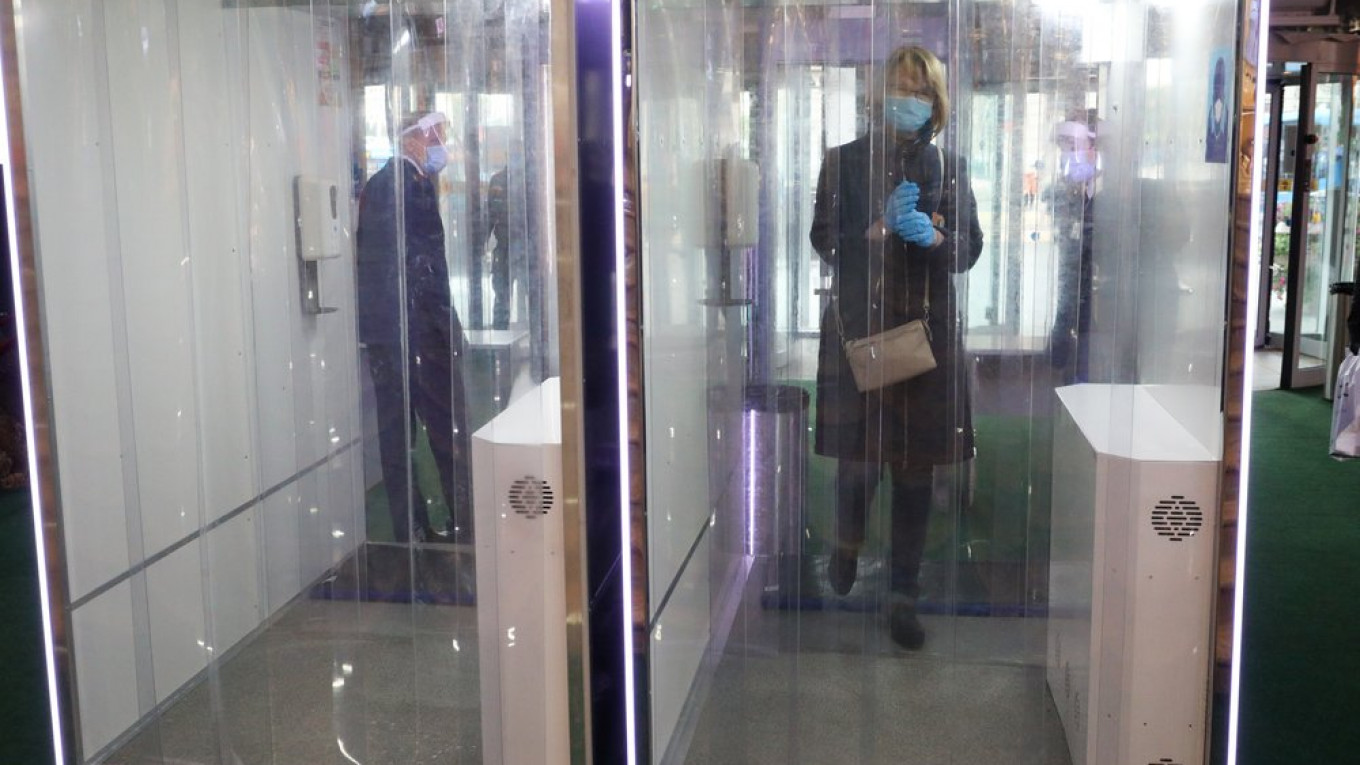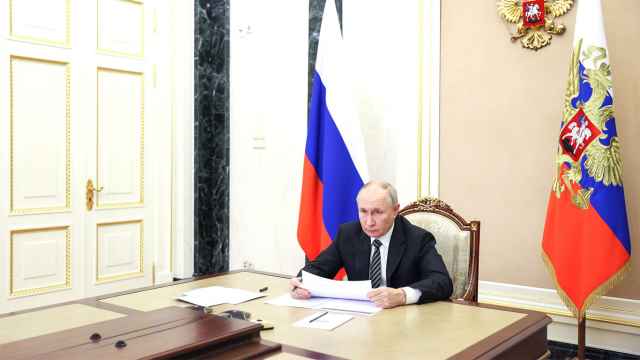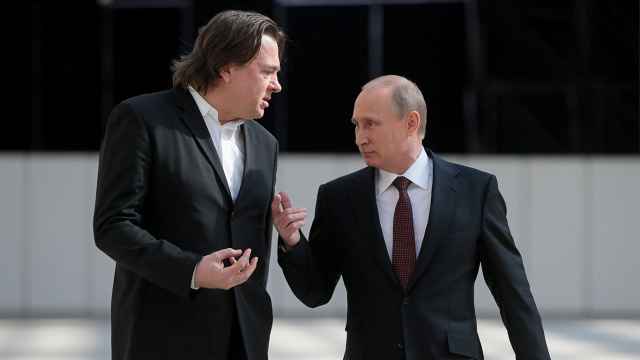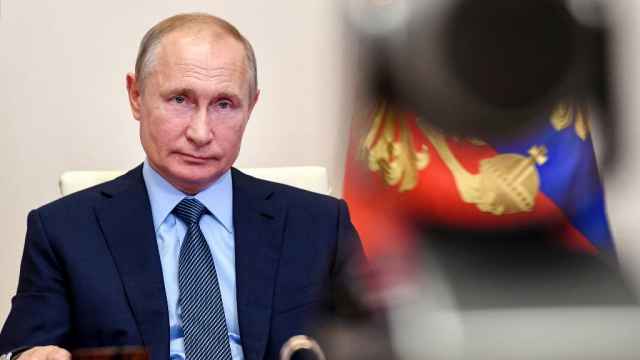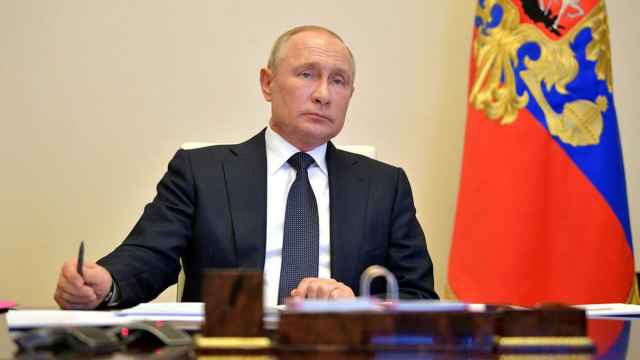Special disinfection tunnels have been installed at President Vladimir Putin’s residence outside Moscow and at the Kremlin to protect him from the coronavirus, his spokesman Dmitry Peskov confirmed Wednesday.
A number of figures in Putin’s circle of contacts have been diagnosed with Covid-19 since the start of the pandemic, including Peskov and the chief doctor of Moscow's main coronavirus hospital who shook hands with the president shortly before testing positive. Peskov has said that everyone meeting Putin has been tested for Covid-19.
The disinfection tunnels dispense a “water mist” of antibacterial solution over a person’s clothes and exposed parts of the body, according to the state-run RIA Novosti news agency.
The tunnel’s maker is a company based in the city of Penza southeast of Moscow that began manufacturing it in May 2020.
“The Russian president’s residence contacted managers at the MIZOTTY plant,” the Penza region’s website cited the plant’s director Olga Izranova as saying.
“We had to deliver and install the equipment under a tight deadline, and the Penza company was able to do to so faster and better than counterparts from abroad,” Izranova said.
Putin made his first public appearance for Russia Day, a public holiday, last Friday after more than two months of coronavirus lockdown. Guests at an awards ceremony that day were tested for Covid-19 and had to spend 12 days in self-isolation as a “precautionary measure.”
The Russian president is known for his aversion to germs and intense cautiousness regarding his health.
Reports suggested that Kremlin officials would be required to go back to the office after working remotely during the lockdown starting this Monday.
Russia has reported more than 550,000 coronavirus cases as of Wednesday, the world’s third-highest caseload, with around 8,500 new daily infections reported in recent weeks.
A Message from The Moscow Times:
Dear readers,
We are facing unprecedented challenges. Russia's Prosecutor General's Office has designated The Moscow Times as an "undesirable" organization, criminalizing our work and putting our staff at risk of prosecution. This follows our earlier unjust labeling as a "foreign agent."
These actions are direct attempts to silence independent journalism in Russia. The authorities claim our work "discredits the decisions of the Russian leadership." We see things differently: we strive to provide accurate, unbiased reporting on Russia.
We, the journalists of The Moscow Times, refuse to be silenced. But to continue our work, we need your help.
Your support, no matter how small, makes a world of difference. If you can, please support us monthly starting from just $2. It's quick to set up, and every contribution makes a significant impact.
By supporting The Moscow Times, you're defending open, independent journalism in the face of repression. Thank you for standing with us.
Remind me later.


